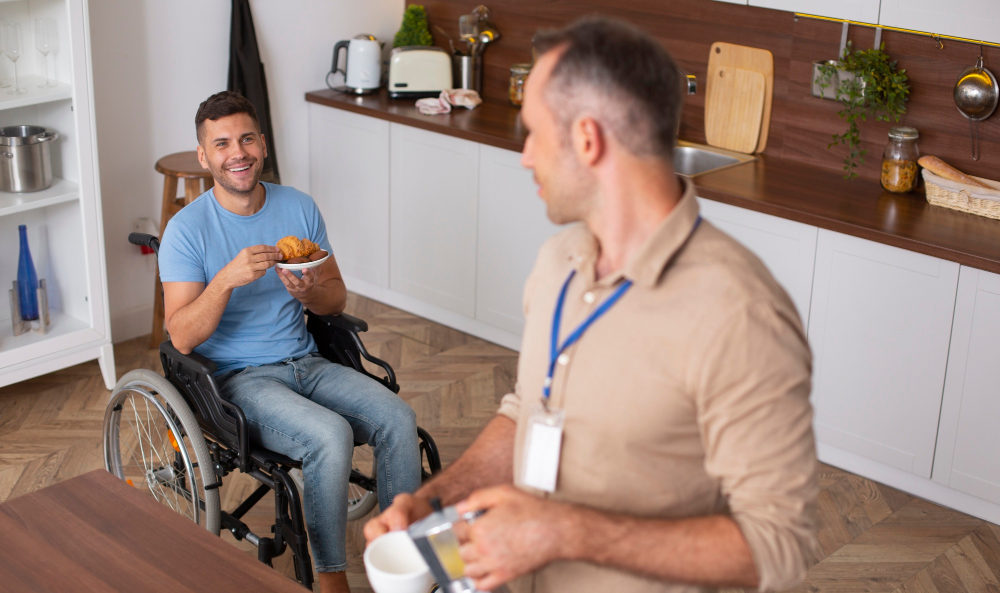Personalised living spaces significantly improve the quality of life for individuals participating in the National Disability Insurance Scheme (NDIS). These custom environments ensure that participants receive the assistance and support they need to thrive in their daily lives. By adapting spaces to suit the specific requirements of each individual, they gain more freedom and better overall well-being. This piece delves into the importance of tailored living environments for NDIS participants and their role in fostering a fulfilling lifestyle.
Understanding Individual Requirements
Each individual involved in the NDIS has unique needs and preferences that must be carefully considered to create spaces that effectively cater to them and facilitate daily activities. Customising living environments to accommodate specific abilities or cognitive requirements is essential. This may involve installing ramps or widening doorways for wheelchair users or using specialised lighting for individuals with visual impairments. By recognising and effectively addressing these needs through tailored spaces, we can enhance comfort and independence for NDIS participants.
Promoting Independence
NDIS accommodation provider aims to help participants achieve greater independence by creating living spaces tailored to their needs and preferences. These customised environments are essential for promoting self-sufficiency, as they incorporate technologies and design elements that empower individuals to carry out tasks independently. For example, voice-operated devices can assist people with mobility limitations, while adjustable countertops cater to a variety of requirements. By allowing participants to take charge of their surroundings through these custom solutions, we significantly enhance their self-reliance.
Enhancing Safety and Accessibility
Ensuring safety is crucial for individuals under the NDIS program. Care homes are designed with safety in mind by integrating elements that mitigate dangers and enhance accessibility. Slip-resistant floors and handrails in bathrooms, along with walk-in showers, help prevent slips and accidents, thereby improving overall safety. Customised spaces also feature emergency alert systems, offering reassurance to participants and their loved ones. Prioritising safety at home cultivates a sense of comfort, allowing participants to lead more assured lives.
Encouraging Social Inclusion
Designs for living spaces should not only meet individual requirements but also promote social interaction among individuals. The layout of areas that encourage communication helps people connect better with their loved ones and friends. Features like open-plan layouts, inclusive kitchens, and shared spaces foster socialising and participation in group events. Such environments help individuals connect with their communities by creating a sense of attachment and closeness. Tailored living spaces are essential for combating loneliness and enhancing social well-being.
Boosting Mental and Emotional Well-being
The way we live in our spaces can significantly affect our mental and emotional well-being—it’s crucial! For those in the NDIS program (National Disability Insurance Scheme), having a personalised space can be like a haven where positive vibes flow freely. Adding touches like colours or special items that hold personal significance can create a cozy and stable atmosphere. Feeling a sense of control over one’s environment can help ease worries and tension, providing an overall boost to mental well-being. When these spaces are tailored to individual preferences, they not only enhance quality of life but also contribute to building emotional strength and resilience.
Facilitating Caregiver Support.
Designing personalised living spaces also benefits caregivers by establishing an environment that promotes effective support provision. Careful planning of features, such as ample storage and practical layouts, simplifies caregiving responsibilities. This enables caregivers to offer assistance efficiently, minimising stress and improving the quality of care. By facilitating caregiver support, personalised spaces ensure that residents receive top-notch care, contributing to a peaceful living environment.
Conclusion.
Personalised living spaces play a crucial role for those under the NDIS program by providing a range of advantages that significantly improve their lives and well-being. These custom environments cater to each person’s needs, promoting independence and safety in their everyday routines. Such tailored spaces empower participants to live fulfilling lives while also fostering social connections and enhancing mental health. Moreover, they facilitate support from caregivers, ensuring a quality of life for NDIS beneficiaries by promoting autonomy and overall happiness.

